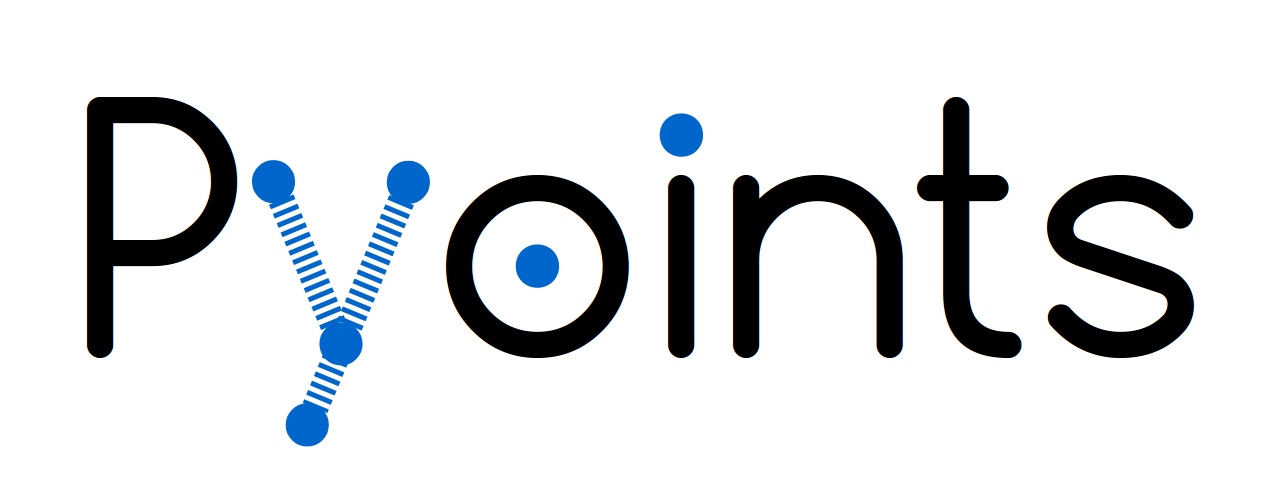# BEGIN OF LICENSE NOTE
# This file is part of Pyoints.
# Copyright (c) 2018, Sebastian Lamprecht, Trier University,
# lamprecht@uni-trier.de
#
# Pyoints is free software: you can redistribute it and/or modify
# it under the terms of the GNU General Public License as published by
# the Free Software Foundation, either version 3 of the License, or
# (at your option) any later version.
#
# Pyoints is distributed in the hope that it will be useful,
# but WITHOUT ANY WARRANTY; without even the implied warranty of
# MERCHANTABILITY or FITNESS FOR A PARTICULAR PURPOSE. See the
# GNU General Public License for more details.
#
# You should have received a copy of the GNU General Public License
# along with Pyoints. If not, see <https://www.gnu.org/licenses/>.
# END OF LICENSE NOTE
"""Module to find pairs of points"""
import numpy as np
from . import (
assertion,
transformation,
IndexKD,
)
from .misc import print_rounded
[docs]class Matcher:
"""Base class to simplify point matching. Points of a reference point set
`A` are assigned to points of a point set `B`.
Parameters
----------
A : array_like(Number, shape=(n, k))
Represents `n` points of `k` dimensions. These points are used as a
reference point set.
radii : array_like(Number, shape=(k))
Defines the sphere within the points can get assigned.
"""
def __init__(self, coords, radii):
coords = assertion.ensure_coords(coords)
radii = assertion.ensure_numvector(radii, length=coords.shape[1])
S = transformation.s_matrix(1.0 / radii)
self.rIndexKD = IndexKD(coords, S)
def __call__(coords):
"""Find matching points.
Parameters
----------
B : array_like(Number, shape=(n, k))
Represents `n` points of `k` dimensions. These points are assigned
to the previously defined reference coordinates.
Returns
-------
pairs : np.ndarray(int, shape=(m, 2))
Indices of assigned points. For two point sets `A`, `B` and each
row `(a, b)` in `pairs` `A[a, :]` is assigned to `B[b, :]`
"""
raise NotImplementedError()
[docs]class PairMatcher(Matcher):
"""Find unique pairs of points. A point `a` of point set `A` is assigned
to its closest point `b` of point set `B` if `a` is also the nearest
neighbour to `b`. Thus, duplicate assignment is not possible.
See Also
--------
Matcher
Examples
--------
Create point sets.
>>> A = np.array([(0, 0), (0, 0.1), (1, 1), (1, 0), (0.5, 0.5), (-1, -2)])
>>> B = np.array([(0.4, 0.4), (0.2, 0), (0.1, 1.2), (2, 1), (-1.1, -1.2)])
Match points.
>>> matcher = PairMatcher(A, [0.3, 0.2])
>>> pairs = matcher(B)
>>> print_rounded(pairs)
[[4 0]
[0 1]]
>>> print_rounded(A[pairs[:, 0], :] - B[pairs[:, 1], :])
[[ 0.1 0.1]
[-0.2 0. ]]
"""
def __init__(self, coords, radii):
coords = assertion.ensure_coords(coords)
radii = assertion.ensure_numvector(radii, length=coords.shape[1])
S = transformation.s_matrix(1.0 / radii)
self.rIndexKD = IndexKD(coords, S)
def __call__(self, coords):
mIndexKD = IndexKD(coords, self.rIndexKD.t)
rIndexKD = self.rIndexKD
rDists, rIds = rIndexKD.knn(
mIndexKD.coords, k=1, distance_upper_bound=1)
mDists, mIds = mIndexKD.knn(
rIndexKD.coords, k=1, distance_upper_bound=1)
pairs = []
for rId in range(len(rIds)):
if rDists[rId] <= 1:
if rId == mIds[rIds[rId]]:
pairs.append((rIds[rId], rId))
return np.array(pairs, dtype=int)
[docs]class SphereMatcher(Matcher):
"""Find pairs of points. Each point is assigned to all the points
within a previously defined sphere. Duplicate assignments are possible.
See Also
--------
Matcher
Examples
--------
Create point sets.
>>> A = np.array([(0, 0), (0, 0.1), (1, 1), (1, 0), (0.5, 0.5), (-1, -2)])
>>> B = np.array([(0.4, 0.4), (0.2, 0), (0.1, 1.2), (2, 1), (-1.1, -1.2)])
Match points.
>>> matcher = SphereMatcher(A, [0.3, 0.2])
>>> pairs = matcher(B)
>>> print_rounded(pairs)
[[4 0]
[0 1]
[1 1]]
>>> print_rounded(A[pairs[:, 0], :] - B[pairs[:, 1], :])
[[ 0.1 0.1]
[-0.2 0. ]
[-0.2 0.1]]
"""
def __call__(self, coords):
mIndexKD = IndexKD(coords, self.rIndexKD.t)
rIndexKD = self.rIndexKD
pairs = []
ball_gen = rIndexKD.ball_iter(mIndexKD.coords, 1)
for mId, rIds in enumerate(ball_gen):
for rId in rIds:
pairs.append((rId, mId))
return np.array(pairs, dtype=int)
[docs]class KnnMatcher(Matcher):
"""Find pairs of points. Each point is assigned to `k` closest points
within a predefined sphere. Duplicate assignents are possible.
See Also
--------
Matcher
Examples
--------
Create coordinates and matcher.
>>> A = np.array([(0, 0), (0, 0.1), (1, 1), (1, 0), (0.5, 0.5), (-1, -2)])
>>> B = np.array([(0.4, 0.4), (0.2, 0), (0.1, 1.2), (2, 1), (-1.1, -1.2)])
>>> matcher = KnnMatcher(A, [0.5, 0.5])
Try to assign one neighbour.
>>> pairs = matcher(B)
>>> print_rounded(pairs)
[[4 0]
[0 1]]
Try to assign two neighbours.
>>> pairs = matcher(B, k=2)
>>> print_rounded(pairs)
[[4 0]
[0 1]
[1 1]]
"""
def __call__(self, coords, k=1):
"""Assign `k` closest points.
Parameters
----------
k : optional, int
Number of neighbours to assign.
See Also
--------
Matcher
"""
if not (isinstance(k, int) and k > 0):
raise ValueError("'k' needs to be an integer greater zero")
mIndexKD = IndexKD(coords, self.rIndexKD.t)
rIndexKD = self.rIndexKD
pairs = []
mCoords = mIndexKD.coords
ball_gen = rIndexKD.knn_iter(mCoords, k, distance_upper_bound=1)
for mId, (dists, rIds) in enumerate(ball_gen):
if k == 1:
dists = [dists]
rIds = [rIds]
for dist, rId in zip(dists, rIds):
if dist <= 1:
pairs.append((rId, mId))
return np.array(pairs, dtype=int)
